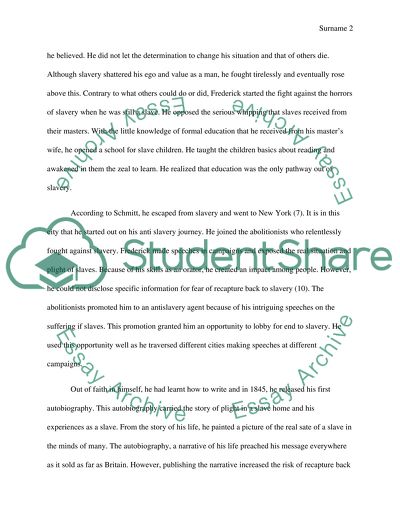Cite this document
(“Frederick Douglass and His Activism Research Paper”, n.d.)
Retrieved de https://studentshare.org/history/1439633-frederick-douglass
Retrieved de https://studentshare.org/history/1439633-frederick-douglass
(Frederick Douglass and His Activism Research Paper)
https://studentshare.org/history/1439633-frederick-douglass.
https://studentshare.org/history/1439633-frederick-douglass.
“Frederick Douglass and His Activism Research Paper”, n.d. https://studentshare.org/history/1439633-frederick-douglass.


